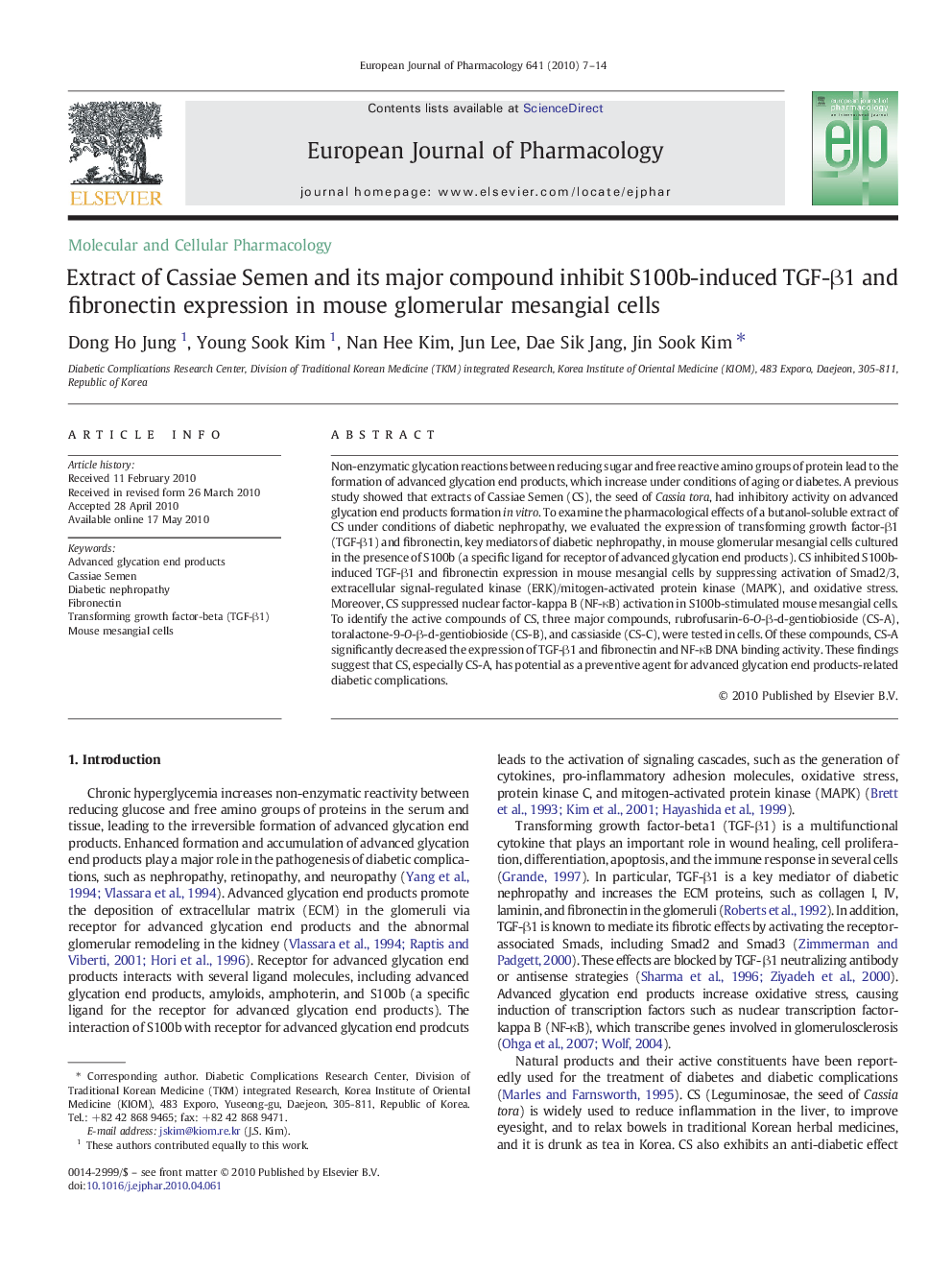| Article ID | Journal | Published Year | Pages | File Type |
|---|---|---|---|---|
| 2533452 | European Journal of Pharmacology | 2010 | 8 Pages |
Non-enzymatic glycation reactions between reducing sugar and free reactive amino groups of protein lead to the formation of advanced glycation end products, which increase under conditions of aging or diabetes. A previous study showed that extracts of Cassiae Semen (CS), the seed of Cassia tora, had inhibitory activity on advanced glycation end products formation in vitro. To examine the pharmacological effects of a butanol-soluble extract of CS under conditions of diabetic nephropathy, we evaluated the expression of transforming growth factor-β1 (TGF-β1) and fibronectin, key mediators of diabetic nephropathy, in mouse glomerular mesangial cells cultured in the presence of S100b (a specific ligand for receptor of advanced glycation end products). CS inhibited S100b-induced TGF-β1 and fibronectin expression in mouse mesangial cells by suppressing activation of Smad2/3, extracellular signal-regulated kinase (ERK)/mitogen-activated protein kinase (MAPK), and oxidative stress. Moreover, CS suppressed nuclear factor-kappa B (NF-κB) activation in S100b-stimulated mouse mesangial cells. To identify the active compounds of CS, three major compounds, rubrofusarin-6-O-β-d-gentiobioside (CS-A), toralactone-9-O-β-d-gentiobioside (CS-B), and cassiaside (CS-C), were tested in cells. Of these compounds, CS-A significantly decreased the expression of TGF-β1 and fibronectin and NF-κB DNA binding activity. These findings suggest that CS, especially CS-A, has potential as a preventive agent for advanced glycation end products-related diabetic complications.
